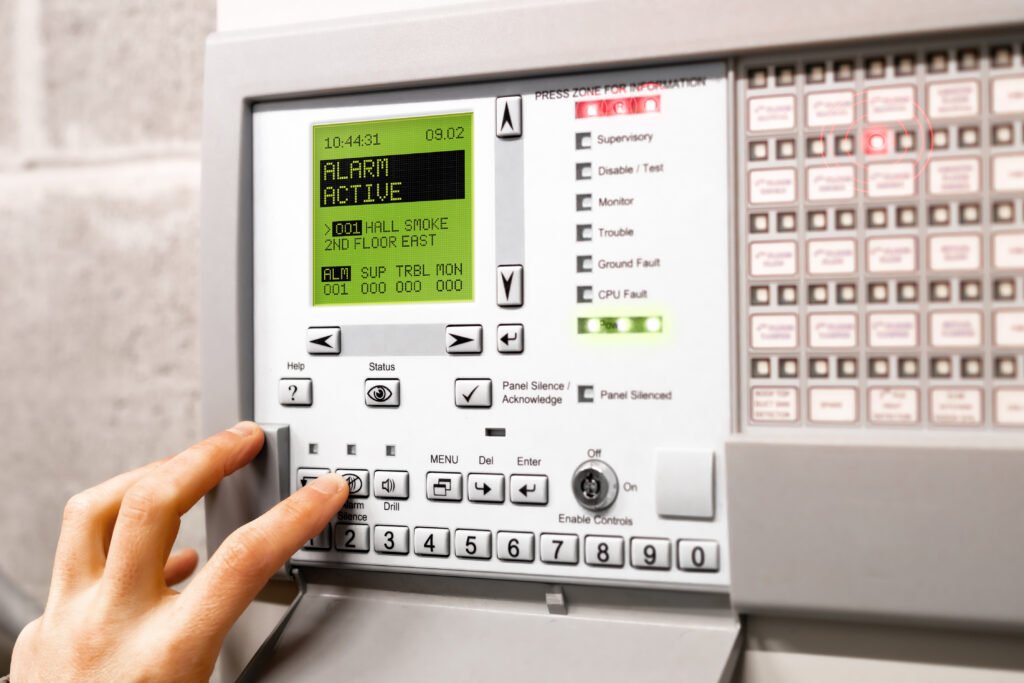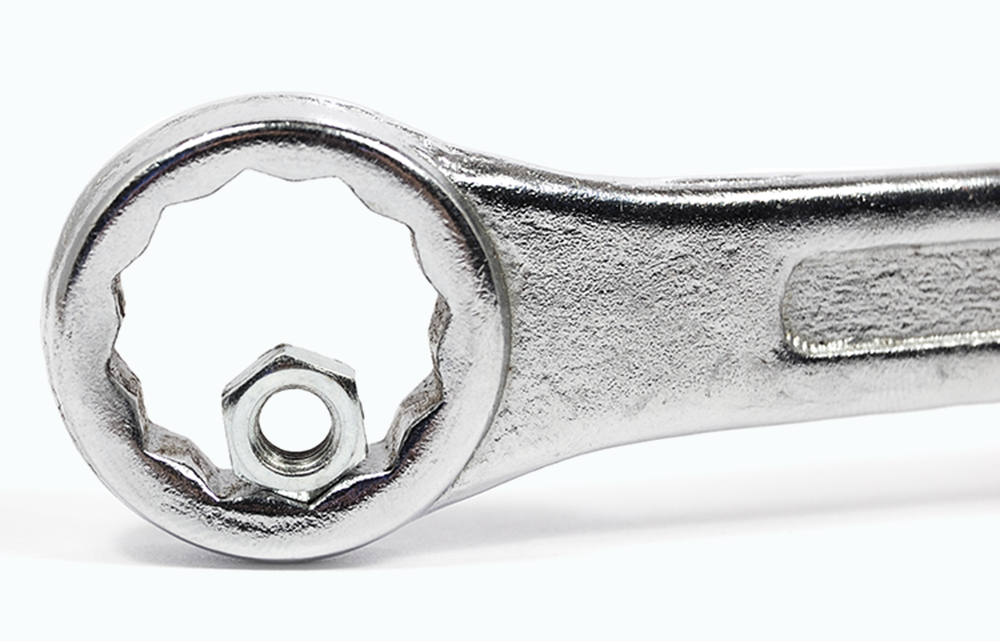How to Become a Fire Alarm Technician

Introduction
Becoming a fire alarm technician can be an exciting and rewarding career, offering opportunities to work with cutting-edge technology and contribute to public safety. Fire alarm technicians play a vital role in ensuring that fire alarm systems in commercial and residential buildings function properly, protecting property and lives. In this article, we will explore the qualifications required, the type of work you can expect, and the opportunities that becoming a fire alarm technician can open up.
Fire Alarm Systems
Fire alarm systems are an essential part of any building’s safety infrastructure. They are designed to detect fires at an early stage, allowing building occupants to evacuate safely and minimising damage to property. These systems consist of various components, including control panels, smoke detectors, and alarms, all working together to alert building occupants of a potential fire emergency.
Fire Detection Systems
A fire detection system forms the backbone of modern fire alarm systems. They include a range of equipment such as smoke and heat detectors, which monitor the environment for signs of fire. Once triggered, the system sends signals to the control panels, which then activate the alarms. Understanding how these systems work is crucial for fire alarm installers and technicians as they are responsible for installing, maintaining, and repairing them.
Fire Detection
The role of fire technicians involves working with fire safety equipment to ensure it operates as expected. Fire detection equipment can save lives by alerting occupants to dangers early, so it’s vital that technicians are skilled in testing and installing these devices properly. From smoke detectors to heat-sensitive alarms, you’ll work with a wide range of fire detection technology to keep people safe.
Fire Systems
Fire systems are broader than just alarms and detection systems. As a fire alarm technician, you’ll work with other systems and services that support fire safety, including sprinklers, emergency lighting, and evacuation systems. Understanding fire systems holistically will make you a well-rounded professional, capable of addressing all aspects of fire safety.
Qualifications Required to Become a Fire Alarm Technician
To become a fire alarm technician, you’ll need specific qualifications. Many employers prefer candidates with a relevant electrical qualification, such as an NVQ in Electrical Installation. Additionally, industry-specific training and certification courses can further enhance your employability. For example, courses accredited by organisations like the Fire Industry Association (FIA) or British Standards help demonstrate your competence in fire detection systems and fire alarms.
Training and Certification
Training is an essential part of becoming a fire alarm technician. You’ll need to complete industry-recognised training courses that cover the installation, testing, and maintenance of fire alarms. These training certificate courses often include both classroom-based learning and hands-on experience. Upon successful completion, you’ll earn certifications that prove your knowledge and skills. British standards certifications are highly regarded, and many employers require technicians to have these.
Practical Skills for Technicians
Fire technicians need strong practical skills, particularly in areas like installation, troubleshooting, installation, and maintenance. This role requires working with various tools and equipment, making technical knowledge essential. Problem-solving abilities are also vital, as you may need to quickly diagnose issues and repair systems to ensure they are fully operational.
The Type of Work Involved
As a fire alarm technician, your work will primarily involve installing, testing, and maintaining fire alarm systems. This includes working with control panels, detectors, and alarm systems. You will also need to ensure that fire alarms comply with current building regulations and health and safety standards. Maintenance is key to ensuring that fire systems remain reliable and functional.
Fire Alarm Maintenance and Testing
Maintaining and testing fire alarms is a critical part of fire alarm jobs. Fire alarms need to be regularly inspected to ensure they meet safety standards and are fully operational. Fire technicians conduct tests to determine if systems are functioning correctly and perform maintenance to fix any issues. This helps maintain the safety of employees and the building and ensures compliance with fire regulations.
The Type of Person Suited to This Career
Becoming a fire alarm technician appeals to individuals who enjoy hands-on work and problem-solving. This job is perfect for someone with an eye for detail and an interest in technology. You’ll also need strong communication skills to liaise with your customers, building owners and customers. Alarm technicians often work in different environments, from small residential buildings to large commercial properties, so adaptability is key.
Opportunities in the Fire Alarm Technician Career
There are various career paths available within the fire and security industry for those who become fire and security technicians. As you gain experience, opportunities to specialise and gain more in specific systems, such as advanced fire detection systems or security systems, may arise. You could also advance to more senior roles, such as a fire systems engineer or project manager. Many employers offer on-the-job training and support for gaining further qualifications.
Fire Alarms and the Fire Safety Industry
Alarm technicians are vital to the fire industry. With fire alarm systems becoming increasingly complex and technology-driven, the demand for skilled technicians is on the rise. We at CSR are a company dedicated to helping fire technicians find the right roles in this growing industry.
Installation of Fire Alarm Systems
Installation is of course a major part of the job, requiring technicians to understand the layout and design of buildings to properly place detectors, control panels, and alarms. Fire alarm systems must be installed following British Standards and building regulations to ensure they meet all safety criteria.
Commissioning and Troubleshooting Fire Alarm Systems
Commissioning fire alarms involves testing and certifying that a newly installed system works as expected. You’ll also need to test and troubleshoot systems when they malfunction, determining whether repairs or replacements are necessary to maintain reliability.
Building Regulations and Compliance
Fire alarm systems must comply with building regulations and British Standards. As a fire alarm technician, you will be responsible for ensuring that all systems you install and maintain meet the required standards, protecting public safety.
Working with Security Systems
Fire alarm technicians often work alongside security system installers to integrate fire detection with broader building security systems. This combination of security systems helps enhance the overall safety and security of buildings.
Career Development and Continuous Learning
The fire and security industry is constantly evolving, with new technologies being developed regularly. As a fire and security alarm technician, staying up to date with the latest developments is essential. Continuous training and professional development will ensure you remain fully competent and equipped to handle the challenges of the role.
Health and Safety
Health and safety are critical when working as a fire alarm technician. You’ll need to follow strict safety protocols to protect yourself and others when designing, installing and maintaining fire alarm systems.
Job Satisfaction
Many fire alarm technicians find the job highly satisfying, as the knowledge that their work directly contributes to saving lives and protecting property. Knowing that your skills help keep people safe adds an extra level of fulfilment to the job.
Conclusion
Becoming a fire alarm technician is a fulfilling career with plenty of opportunities for progression. By gaining the right qualifications, developing your practical skills, and staying current with industry developments, you can build a successful career in the fire safety and security industry. We at CSR are here to help you find the right job to kick-start your business or advance your career.
Every Job is Easier if You Have the Right Tools
